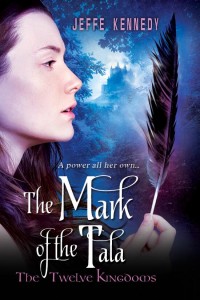
The other day I saw a well-known reviewer discuss a popular book that concluded a trilogy. They commented that they enjoyed the grand finale, but wished that the hero – who’d been built up as being the most powerful of his kind – had wielded more of that power in the final battle. I nodded along, having felt the same way. I also know why the story skewed in that direction. The heroine stepped up and took the lion’s share of the heroics in defeating the Big Bad.
Does it have to be that way? I don’t know.
As both a reader and a writer, I see stories through a dual lens. I very much enjoyed that trilogy and loved the ride, but I did feel a little let down that this hero I’d come to love never truly flexed this incredible power that had been hinted at all along. At the same time, my author mind was running the plot analysis and thinking, “Well, yeah – his power had to be downplayed for the heroine to shine.” Otherwise we’d end up with yet another story where the hero saves the day while the heroine cheerleads with breasts bouncing on the sidelines.
In fact, it drives me crazy when the hero takes over the narrative from the heroine – the reverse situation of this example – and I see stories fall into that trap all the time. And I am definitely talking about stories where there are two primary protagonists, one male and one female. The gender politics, assumptions, and subconscious programming come into play with the hero/heroine dynamic that aren’t as present or pronounced with male/male or female/female pairings. Or, so I believe. Someone who’s more versed than I am in parsing those dynamics is welcome to take up that topic.
What I see in hero/heroine, male/female pairings is that the female character will often begin with a terrific set of strengths and challenges. She might have a fascinating profession, or be determined on a quest or revenge. As the story plays out, however, gradually the hero takes on the active role, handling the greatest challenges while the heroine takes a step back.
An example that springs to mind is a story where the heroine has returned from an abduction, having left a child behind. She actively manipulates her family and events so she can marry a man who will take her back to recover the child. Enter the hero, who arrives in the story entirely as a tool for the heroine to get what she wants. As the story progresses, she discovers her magic and they engage in adventures and battles. By the end, however, I was dismayed to see her pretty much hanging out back at the castle, pregnant and watching the kids, while the hero went out and battled the Big Bad. He had become the far more interesting and active character.
I think this happens in part because of gender stereotypes and the weight of stories and tropes in our heads. It’s easier to give over the action to the big warrior hero, because we have a lot of precedence for that kind of story. But it doesn’t have to be that way. As we’ve seen with all kinds of gender-swapped stories, we can produce fantastic narratives with roles and tropes switched up.
But do we have to switch and swap?
As with my opening example, it wasn’t satisfying to me as a reader to have the hero basically sidelined either. It’s a challenge, but I think stories that have a male/female pairing – whose adventures in part show what a great team they make -should strive to give equal limelight to both the hero and heroine. I think Ilona Andrews does a great job of this in their books, giving both the hero and heroine critical roles in overcoming the challenges, each playing to their own strengths.
What do you all think of this – am I wrong? Who else writes this balance well?

